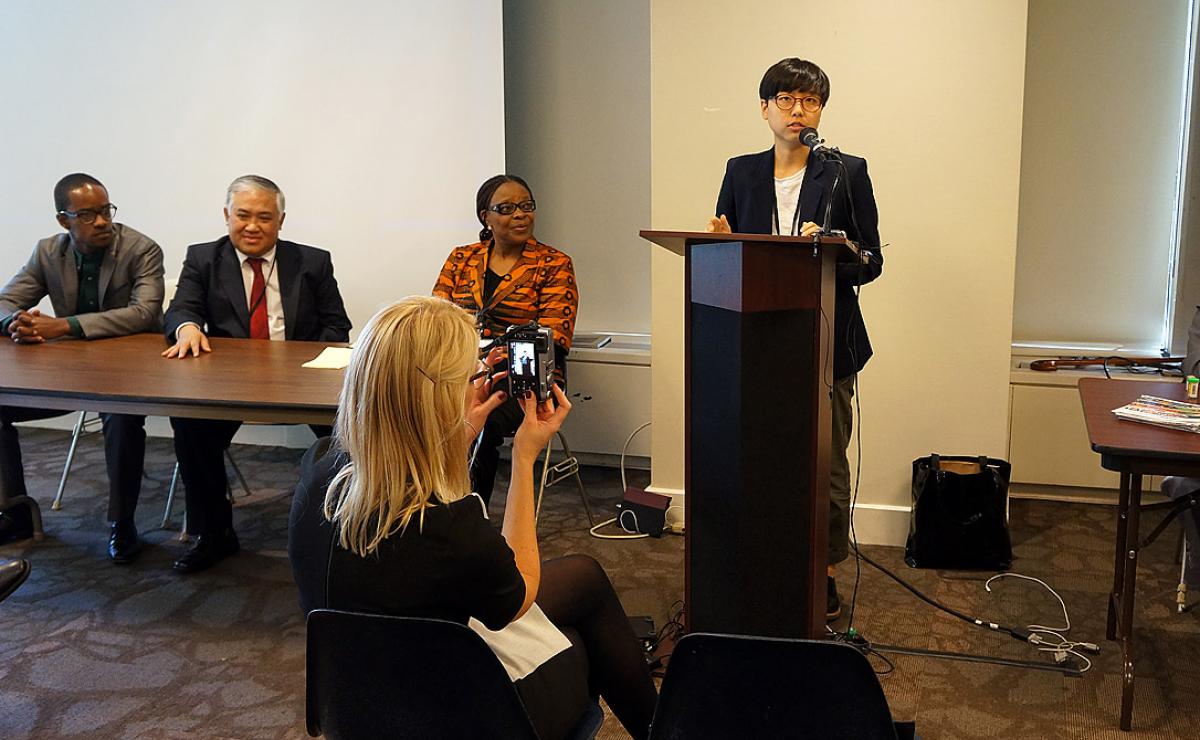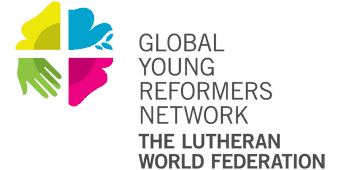A Spiritual Message of Hope for Climate Justice

LWF Representative Kwon Offers Highlights from New York Climate Change Summits
(LWI) – While the recent Interfaith Summit on Climate Change emphasized politicians’ urgent responsibility in taking action to limit global warming, it also challenged religious leaders to help “maintain the ark of faith and the ark of love” ahead of the 2015 United Nations climate change conference, says The Lutheran World Federation (LWF) representative at the summit.
Ms Eun-hae Kwon, LWF Vice-President for the Asian region said the keynote speech by the United Nations official Ms Christiana Figueres “was a moment where you could feel how earnestly the society today is longing for a spiritual message of hope—hope that it is possible to change, and for ethical principles of care for creation and love of our neighbor.”
In her keynote address to the 21-22 September religious leaders’ gathering jointly organized by the World Council of Churches and Religions for Peace, Figueres, Executive Secretary of the UN Framework Convention on Climate Change (UNFCCC) stressed the role of interfaith collaboration in climate justice initiatives.
At the end of the summit, Kwon was among the 30 faith leaders representing nine religions who signed a statement Climate, Faith and Hope: Faith Traditions Together for a Common Future to be presented to the UN Climate Change Summit on 23 September.
In the statement, the religious leaders urged politicians attending the Heads of State Summit to make the right and difficult decisions “for the sustainability of the earth and its people.” They called for commitment towards a far-reaching global climate agreement at the UNFCCC meetings in Paris next year.
For Kwon, the religious leaders’ gathering was “a historic moment, a milestone but not yet the destination,” as interfaith collaboration and other initiatives on climate justice must persist at local, national and global levels. “This is part of our shared responsibility for creation and our neighbor,” she noted. Religions, she added, “are building blocks and not stumbling stones for a just future for the human family and our common world.”
Fasting: An Opportunity to Step Back
On the interfaith “Fast for the Climate” campaign started at the UN climate conference in Poland with LWF’s leadership, Kwon said the invitation to fast on the first day of each month offers “an opportunity to step back, pray and reflect” in the midst of necessary technical and political discussions.
Despite the different backgrounds—Buddhists, Christians, Hindus, Jews, Muslims, indigenous traditions and other faith traditions—fasting has a strong spiritual meaning for all. “We can all join in this common experience as one powerful tool of working for climate justice together,” the LWF vice-president explained.
On youth participation and leadership in the climate change discussions, Kwon noted that the all-young-people composition of the LWF delegation to the UNFCCC Conference of the Parties (COP) meetings sends a strong message that “in the LWF, climate change is an issue of intergenerational justice.”
Young people across the world are very concerned about the kind of planet we will inherit from those who make decisions today. “That is why we have to be at the negotiating table. And, this was reiterated at the interfaith summit.”
